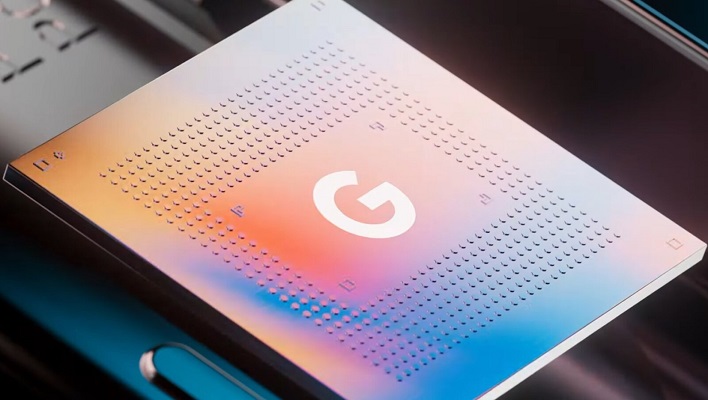The search engine giant Google is relying on its own chip processor, replacing Qualcomm’s Snapdragon chips. On Monday, the company announced that it is developing its own smartphone processor, named Google Tensor. It said that this new processor will power its upcoming Pixel 6 and Pixel 6 Pro smartphones.
The California-based company has been struggling to capture even a slice of the smartphone market. Thus, to differentiate in the already crowded market, the company is building a custom SoC (system on a chip). Google Tensor will be based on the ARM architecture, same as Snapdragon chips. Google’s hardware chief Rick Osterloh said that it’s important to build your own processor to run advanced AI models. “We decided if we’re going to really innovate for the future, we’re going to need to build our own system,” he said.
This is not the first time Google has made an attempt to build its own chip. In May 2016, the tech behemoth built a tensor computing unit (TPU) chip to power its AI servers. This chip was developed with help of Google’s open-source hardware platform TensorFlow. “We knew we wanted to borrow on the equity of that name, and eventually run TensorFlow really efficiently on mobile devices,” the hardware chief added. This ambitious move by the company moves them in the boat with Samsung and Apple who build their own chips.
Tensor’s To Revamp Google Pixel Smartphones
Google Pixel phones have been known for their exceptional cameras. However, to expand their limits, powerful AI models and processing chips are crucial for the phones. The company has relied on computational photography instead of embedding big lens on the cameras. Even though its new Pixel 6 phones will be jabbed with Tensor chip, Google said that its lower-end phones will still rely on Qualcomm for its chips. The company’s new chip will also improve video quality, the part where Google phones lacked. Osterloh said that ‘’with Tensor” Pixel 6 phones will witness the transformation in the video performance.
Besides the camera system, Tensor will help the Pixel 6 phones to improve the speech recognition feature. Osterloh demonstrated Gboard dictation by telling Pixel to send a message. At first, the message missed punctuation; however, at the end of the paragraph, the software retained that punctuation mark. Talking about the hardware design, it’s a complete revamp of Pixel phones. “If we’re going to transform what’s under the hood so much, we should really transform the design of the product too,” Osterloh told in an interview with WIRED. “Pixel has always been known for photography, and this just makes that point very clear.”
Will Chip Shortage Impact Google?
The chip shortage across the globe has forced various tech giants to limit their production capability. For instance, Tesla recently said that it will limit its energy storage system production due to the chip crunch. Moreover, Apple also said that the global concern will also impact iPhone sales. On the other hand, the hardware chief stays optimistic over the production of its Pixel 6 smartphones. “For this particular chip, we have a lot of control over it, and we don’t believe the Pixel 6 line will be constrained. So that’s a positive. But there are so many semiconductors in the product, like in every electronics product, that it’s definitely been a difficult problem. It’s affected us this year, for sure.”
Google to Not Run on Older Android Apps
The company said that Google apps such as Gmail, YouTube, and Maps will stop running on Gingerbread OS or other versions from September 27 this year. “As part of our ongoing efforts to keep our users safe, Google will no longer allow sign-in on Android devices that run Android 2.3.7 or lower starting September 27, 2021,” Google said.

More Stories
Latest Research Report On Rotary Air Preheaters Market 2021. Major Players Included – Maxxtec, Mitsubishi Heavy Industries, Howden, Kelvion, Balcke-Durr GmbH, etc.
Complete Rotary Compressor Market Analysis & Forecast 2021-2028
Latest Research Report On Rotary Die Cutting Machine Market 2021. Major Players Included – Duplo USA, Bograma AG, DeltaModTech, MarquipWardUnited, SUN Automation Group, etc.